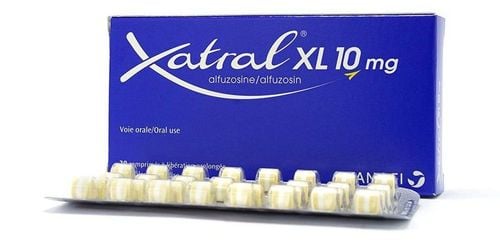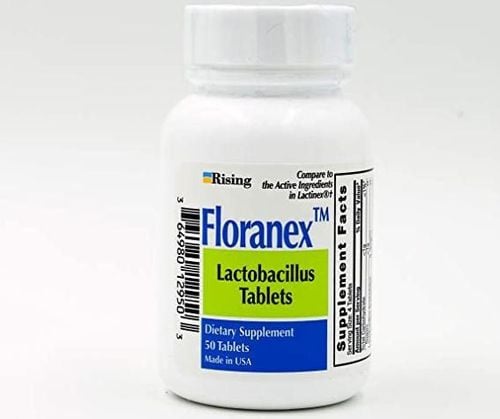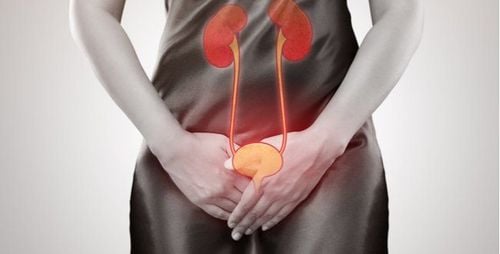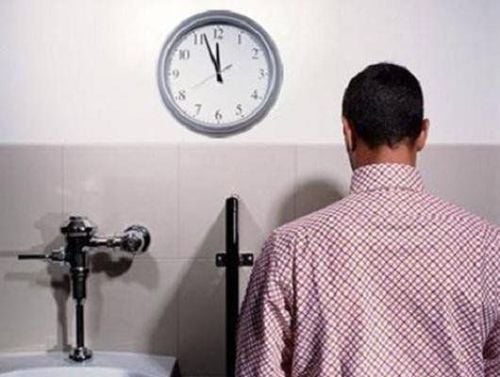This is an automatically translated article.
The article was professionally consulted by Specialist Doctor I Nguyen Hung - Department of Medical Examination & Internal Medicine - Vinmec Danang International Hospital. With over 36 years of experience in the profession, the doctor has experience in treating endocrine - diabetes and kidney diseases.Nocturia causes sufferers to wake up, go to the toilet many times and disrupt sleep. Nocturia is different from bedwetting, which often occurs in young children, and is caused by a number of different causes. The following article will clarify these causes, helping you understand what pathology a lot of nocturia is caused by.
1. Nocturia due to fluid imbalance
1.1. Frequent urination both day and night There are many causes of nocturia, if there is an imbalance of fluids in the body causing urine output > 40ml/kg/24 hours, you can think of a number of factors such as:Drinking too much lots of water or alcohol; Have diabetes; Hypercalcemia; Chronic renal failure . 1.2. Nocturnal polyuria Nocturia or nocturia is defined as nocturnal urine output >35% of total 24-hour urine output during the day. Causes include:
Drinking a lot of water and alcohol in the evening. The time to take diuretics is close to bedtime. Changes in antidiuretic hormone secretion due to age. Congestive heart failure causes nocturnal fluid redistribution. Venous stasis causes edema. In general, the most common cause of nocturia is drinking too much water near bedtime, especially drinks containing alcohol and caffeine. Therefore, patients should pay attention to reduce the amount of fluid at this time to significantly improve the condition of nocturia and insomnia. If the frequency of urination has not decreased, consider seeing a doctor to find out the cause of nocturia.
2. Nocturia due to neurological causes

2.1. Some neurological diseases Common neurological disorders causing urinary retention, urinary incontinence, urinary frequency or nocturia include:
Multiple sclerosis; spinal cord compression syndrome; Diabetes mellitus; Parkinson . If a woman older than 60 years of age has frequent urinary retention but a bladder obstruction has been ruled out, then neurologic disease should be considered in the diagnosis of urinary retention or nocturia.
2.2. Sleep apnea Sleep disorders can also be the cause of nocturia. Specifically, sleep apnea has been reported to increase the frequency of nocturia.
Therefore, the treatment of sleep apnea has the ability to significantly improve the condition or nocturia and insomnia.
3. Nocturia due to lower urinary tract disorder
The urine-concentrating function that helps the body sleep through the night without interruption becomes less effective with age. In addition, prostate enlargement in older men and urinary problems in women also cause inflammation, which makes the bladder weaker and has to hold more urine, thereby increasing urination. At night. The specific causes are:Urethral disease causing obstruction of flow from the bladder; Overactive bladder; Hypersensitivity due to illness or pregnancy; Urinary tract infection ; Interstitial cystitis.
4. Benign prostatic hyperplasia in men
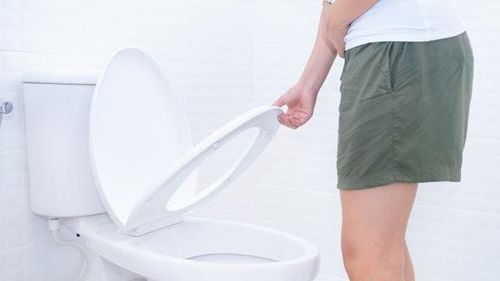
The prostate gland surrounds the urethra, if An enlarged bladder causes obstruction to the flow, as well as thickening of the bladder wall and difficulty emptying urine.
Benign prostatic hyperplasia can be treated with both surgical intervention and medical treatment. Visiting and consulting with a doctor will help patients get rid of the situation of living with the symptoms of benign prostatic hypertrophy, no longer or frequent nocturia.
5. Effects of certain drugs
In addition to the causes of nocturia mentioned above, the effects of many drugs are also responsible for nocturia syndrome. In which, the most common are diuretics to treat hypertension or treat peripheral edema in the feet and ankles. The drugs listed are as follows:Furosemide (Lasix); Demeclocycline; Lithium; Methoxyflurane; Phenytoin; Propoxyphene. In general, men with nocturia often immediately think of a prostate problem without considering other causes. In fact, there are many factors that combine to cause nocturia and insomnia, so patients need to go to a specialist hospital for careful examination to determine the cause of nocturia through history, clinical and laboratory examination. Determining the exact cause of nocturia, combined with adjusting appropriate living habits, is a way to help cure and improve nocturnal polyuria.
Patients with nocturia can go to Vinmec International General Hospital to be diagnosed to determine the cause and intervene treatment. The leading urologists at Vinmec will perform the necessary examination methods to find the cause of the nocturia syndrome and give the most effective treatment advice, helping the patient to return to life soon. normal activities, improve quality of life.
Please dial HOTLINE for more information or register for an appointment HERE. Download MyVinmec app to make appointments faster and to manage your bookings easily.





